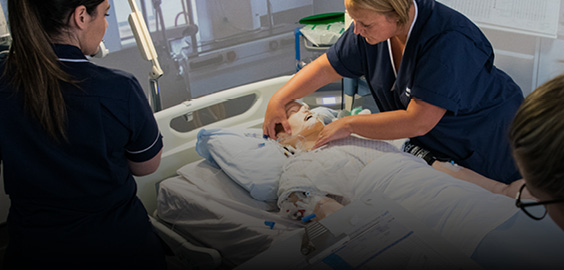You will learn how to conduct assessments, surveillance, and interventions utilising validated tools in specialist practice and explore and apply contemporary theory to a range of biopsychosocial and challenging situations surrounding infant/child, parents and carers. Utilising a range of knowledge, understanding and skills, you will learn to identify both normal and atypical patterns of infant/child development or anomalies, applying strategies to manage identified risks. Through risk management and family approaches, you will learn to take strength based and trauma informed approaches to evaluate the effects of childhood trauma. You will learn to be adaptable to different cultures and environments and appreciate intergenerational cycles of deprivation and vulnerability. You will have the opportunity to demonstrate, and apply advanced-level communication, motivational interviewing, and interpersonal skills within on and off the job to address the wider determinants of health.
Using the evidence-base from contemporary research, policy, and new and emerging technologies, including genetics, genomics and epigenetics, you will learn how to make effective observations and intervention plans which positively influence health and well- being, providing effective health promotion and prevention strategies.
Through field specific Action Leaning Sets (ALS) you will critically analyse, evaluate, synthesise and apply the evidence related to: Health Visiting - the health and wellbeing of parents, carers, families, infants and children. This will include topics such as the mental health in the perinatal period, promote healthy development of infants/children, initiate person-centred interventions appropriately to minimise risks through promotion of healthy relationships.
School Nursing - home, school and community life of school aged children and young people. This will include topics such as addressing the intergenerational cycles of dependency and adversity through identifying protective factors, early help and interventions, recognising assumptions, biases and stigma that have an impact on school aged children and young people, mental
health and wellbeing, sexual health and the impact of social media in cyber-bullying, sexting and exploitation.
More information
 Option for Placement Year
Option for Placement Year Option for Study Abroad
Option for Study Abroad










